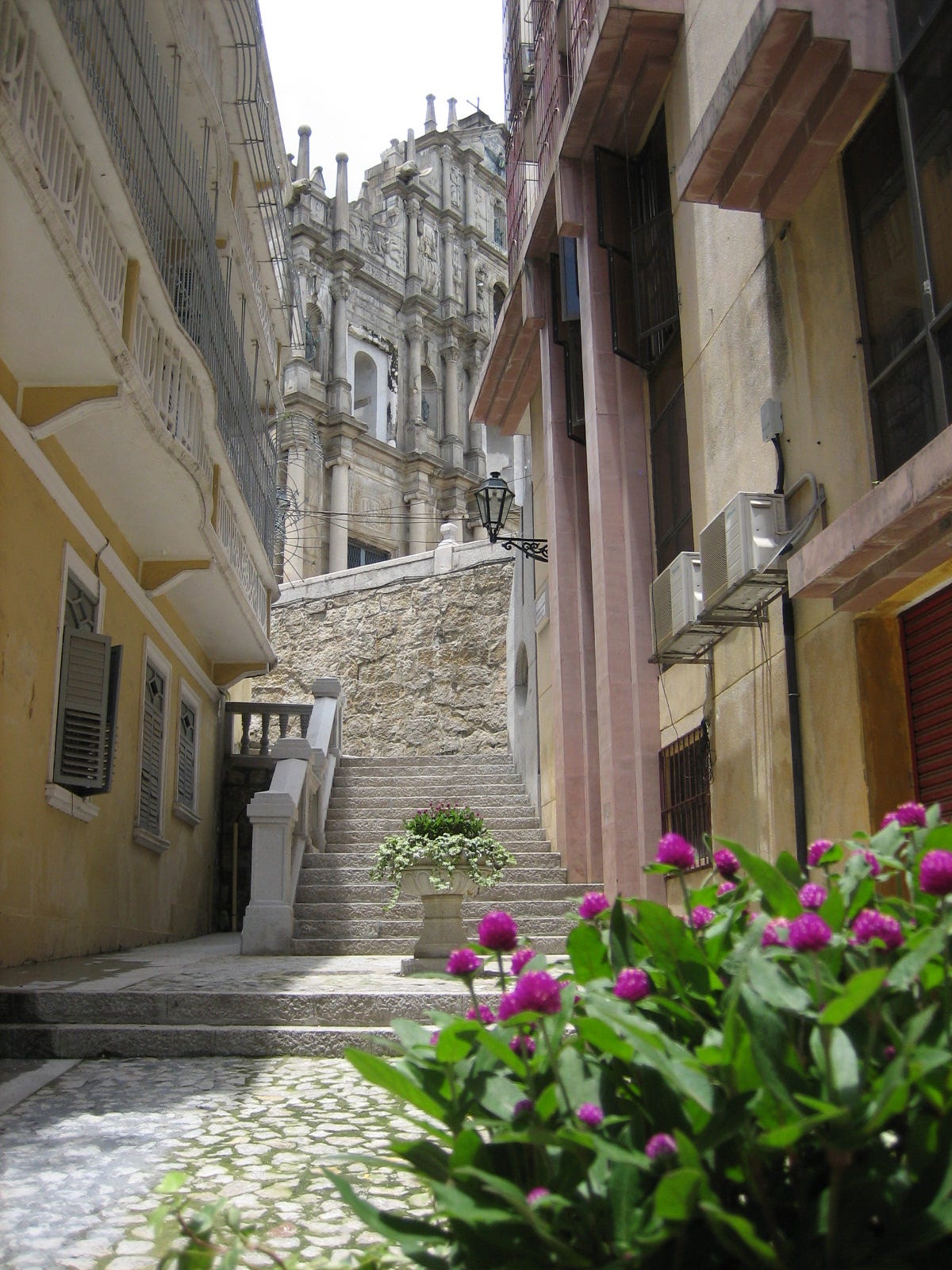The cobblestone contradiction of Macau
Often reduced in popular culture to the "Las Vegas of Asia," this diminutive territory offers far more than glitzy casinos and neon lights.
Macau may be small but its streets tell powerful stories. Twenty-five years after China assumed sovereignty under its "one country, two systems" framework, the island city presents a stark study in contrasts.
Long burdened by its reputation as Asia’s gambling mecca, Macau seems to have navigated that tricky balance between identity and ideology as a semi-autonomous state operating under the watchful eye of Beijing.
Stepping off the ferry from Hong Kong, travellers are greeted first by pastel-coloured colonial buildings, tiled plazas, and cobbled streets reminiscent of Lisbon's Bairro Alto. Macau's historical heart pulses around Senado Square, a UNESCO World Heritage site, where visitors sip strong Portuguese espresso at cafés alongside Chinese bakeries serving freshly baked egg tarts.
It feels and sounds and looks decidedly different from my first and only visit almost 2 decades ago. One reason for that are the historic preservation efforts underway throughout the peninsula. To wit, the Ruins of St. Paul's, Macau's most famous landmark, has undergone extensive restoration work that was completed earlier in late 2024.
The 17th-century façade now features new lighting installations that showcase the detailed carvings and bring the structure to life at night. The surrounding historic district has also benefited from careful restoration, allowing visitors to experience the colonial architecture as it appeared centuries ago.
Yet high above the narrow lanes of Taipa Village, once sleepy neighbourhoods are overshadowed by surveillance cameras and subtle reminders of Beijing’s presence. That said, it wouldn’t be unheard of to find locals discussing politics over wine in Portuguese taverns.
This complex political reality extends into its artistic community. These days you’ll find art and cultural spaces flourishing, like the Macau Contemporary Art Museum. Housed in a converted colonial-era maritime warehouse, the museum attempts to push boundaries through nuanced exhibitions reflecting societal dialogues.
Plus, venues like the upcoming Macau Cultural Center, slated for opening in late 2025, aim to redefine perceptions, spotlighting innovative theatrical productions, immersive exhibits, and international cultural exchanges rather than blackjack tables and slot machines.
Food too, continues the city’s dual (or is that duel?) narrative. Portuguese and Chinese fusion cooking is a thing, reflecting the territory’s unique history as a meeting point of culinary traditions spanning continents. Macanese cuisine goes like this: combine southern European cooking techniques with Chinese ingredients and spices from former Portuguese colonies in Africa, India, and Southeast Asia.
This unique merging of cuisines has seen Macau emerge as a culinary destination. While Michelin stars abound, traditional Macanese restaurants like Riquexo and Restaurante Litoral highlight this gastronomic tango.
African chicken, a signature dish featuring a complex marinade of coconut, peanuts, chili, and garlic, showcases the territory's connections to Mozambique and Angola. Minchi, a ground meat concoction seasoned with soy sauce and molasses over rice with a fried egg, represents home-style comfort food that emerged from Portuguese-Chinese family kitchens. Tacho, a hearty stew with Chinese cabbage and various Portuguese cured meats, epitomises the blend of European and Asian cooking methods.
Thankfully, street food remains in abundance too and is an essential part of the Macau experience.
What is new since my visit years ago, is access to Coloane, the less developed island that forms part of the Macau Special Administrative Region. New hiking trails connect the island's beaches and hills, offering respite from the densely populated peninsula; and a chance to work those calories off. The striking views of the territory provide a welcome contrast to the glitzy urban experience most visitors might associate with Macau.
What’s even more apparent to me this time around is the opportunity to witness genuine cultural contrasts in a globalised world that is becoming increasingly homogenised. For weary travellers seeking authentic cultural experiences, Macau offers a rare opportunity to witness a living example of historical cross-cultural exchange alongside modern development.
While high-speed rail now connects the territory to mainland China, centuries-old Portuguese street signs remain protected by heritage laws. Catholic processions still wind through streets decorated with red lanterns during Chinese New Year.
It’s this rare opportunity to witness such a living example of historical cross-cultural exchange alongside modern urban development that you’d be hard pressed to see and experience anywhere else in Asia. Or the world, for that matter.








